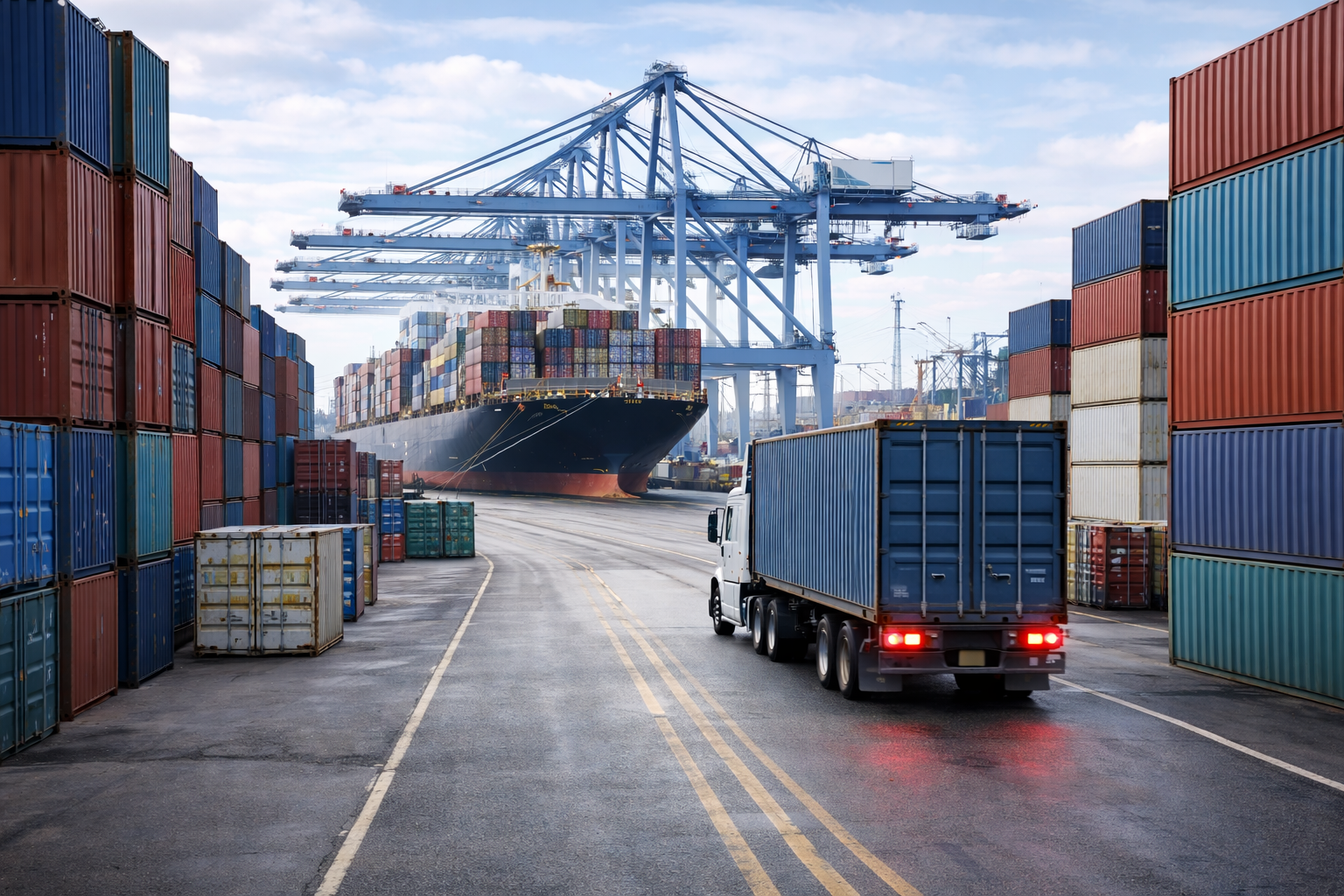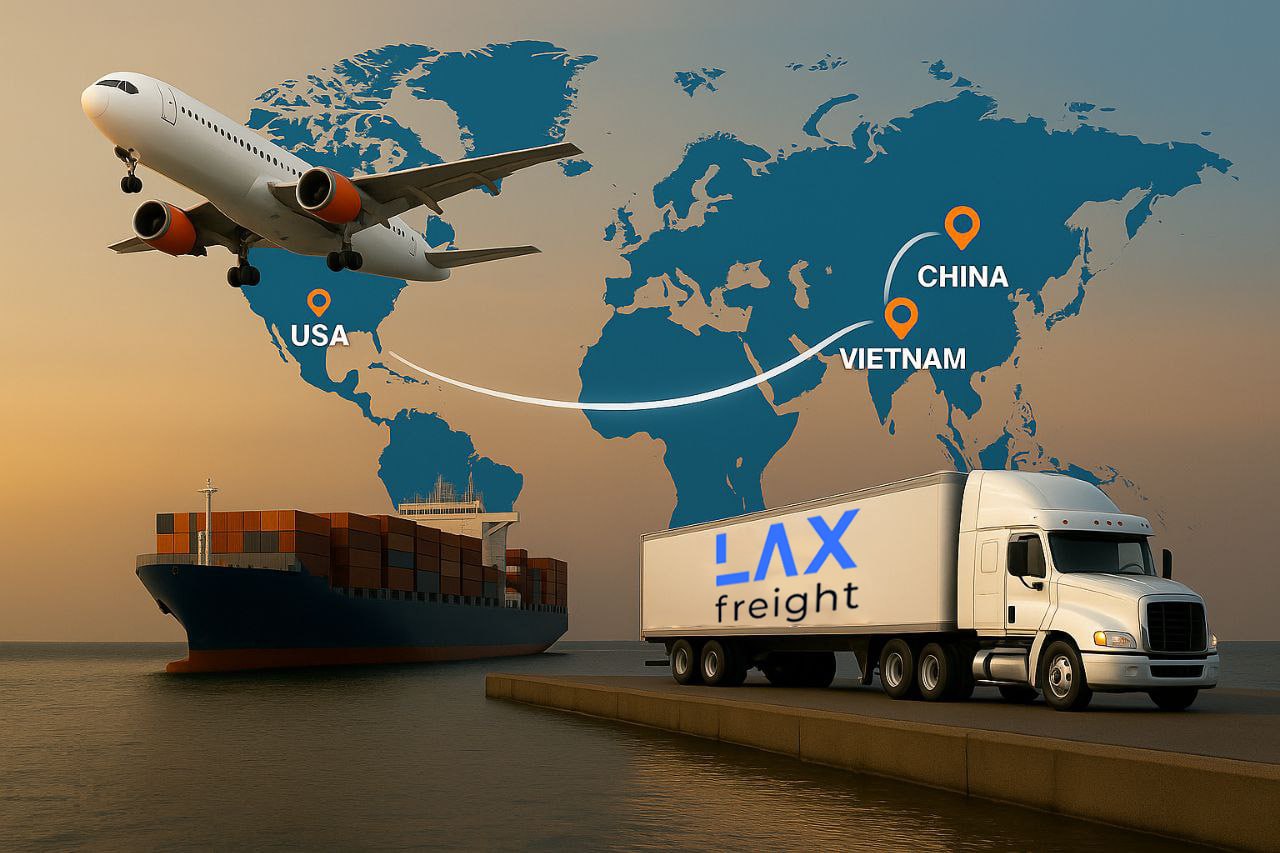In today’s fast-paced world, AI in supply chain management can revolutionize how businesses handle logistics. Traditional methods may struggle to keep up with shifting market trends, unexpected supply chain disruptions, and increasing customer expectations. Artificial intelligence can give companies powerful tools to analyze data, improve efficiency, and reduce operating costs.
Leading companies such as Zara, Amazon, Unilever, Pfizer, and Siemens have successfully integrated AI-powered solutions into their supply chain processes. These companies have proven that technology can drive cost savings, improve supplier operations, and increase efficiency.

Overview of AI in Supply Chain Management
Artificial Intelligence (AI) transforms global supply chain management, enhancing efficiency and resilience. In today’s fast-moving world, traditional business models can struggle to keep up with innovative trends and changing demands. AI systems can help by analyzing vast amounts of recent data and improving decision-making.
Implementing AI can help improve visibility, optimize logistics processes, and improve inventory management. From demand forecasting to risk management, AI is a powerful tool that helps companies stay competitive.
AI Applications in Supply Chain Management
AI improves accuracy, speed, and efficiency in many supply chain management areas. Businesses can automate key processes, reduce errors, and respond quickly to changes in demand. Whether managing inventory, optimizing transportation, or assessing supplier reliability, AI helps companies make better decisions and streamline their operations.
AI is revolutionizing logistics solutions by enhancing efficiency, reducing costs, and improving decision-making. It is reshaping supply chain companies worldwide, from forecasting demand to optimizing logistics processes.
Businesses that use AI can gain a competitive advantage by improving supply management, increasing real-time visibility, and ensuring a resilient supply chain.
Demand Forecasting
AI-powered tools can simplify forecasting as well. To identify market patterns, machine learning solutions analyze historical sales, weather patterns, and other variables. Companies can also use their own data sets to make accurate predictions. This helps avoid overstocking and stockouts, reducing unnecessary expenses.
For example, AI helps retailers stock the right amount of medicine or personal protective equipment during flu seasons by considering recent data and trends. This ensures optimal stock levels, reduces operating costs, and improves service reliability.
Inventory Operations
AI helps companies maintain inventory levels and predict when stock needs replenishment. Traditional methods can lead to overstocking or shortages. However, AI-powered tools provide real-time monitoring into stock levels, allowing one to make necessary adjustments.
AI-driven warehouse management systems track stock movements, analyze information, and suggest mitigation strategies to prevent excess or insufficient stock. AI improves efficiency and enhances the customer experience by reducing errors and operating expenses.
Logistics and Transportation
AI enhances supply operations by optimizing transportation processes and supply chain planning. Its algorithms analyze traffic conditions, weather, and other factors to determine the most efficient route for deliveries, minimizing delays, reducing fuel consumption, and lowering costs.
For example, LAX Freight uses AI-based logistics data to improve route planning and delivery time for your business. You can track your shipments and ensure smooth supply chain operations with real-time tracking.
Looking for AI-driven logistics solutions? Contact LAX Freight to optimize your transportation and improve efficiency!
Supplier Relationship Management
AI improves supplier performance by analyzing data on quality, delivery times, and costs. Supply chain organizations use AI-powered insights to evaluate supply chain partners, ensuring better collaboration and reliability.
AI tools help businesses assess supplier risks, predict potential supply chain disruptions, and maintain a resilient supply chain. This leads to improved supplier relationships and stronger global supply chains.
Risk Management
AI enhances risk management by identifying potential threats before they cause major issues. For example, AI in logistics can detect patterns that indicate risks, such as delays, natural disasters, or political instability.
By using predictive analytics, companies can develop mitigation strategies to handle supply chain disruptions more effectively. This allows businesses to reduce downtime, prevent losses, and enhance overall reliability.
Product also ion Planning
AI optimizes the factory. These technologies improve production by analyzing data sets. This allows the adjustment of production schedules based on customer demand and material availability.
Machine learning algorithms help companies forecast material needs, ensuring that manufacturing processes remain efficient. AI also improves worker safety by monitoring conditions and identifying hazards in real time.
Benefits of AI in Supply Chain Management
AI offers significant advantages for supply chain organizations. It helps businesses operate more efficiently and respond to challenges more precisely. AI improves performance across supply chain management areas by automating processes and analyzing large volumes of data.
Improved efficiency and cost reduction
AI helps companies reduce logistics costs by streamlining supply chain processes. Automated systems can optimize workflows, minimize waste, and improve resource allocation. By using intelligent systems, companies can cut unnecessary expenses, improve productivity, and enhance overall efficiency.
Enhanced accuracy in demand forecasting
AI-powered forecasting allows companies to predict customer demand with greater accuracy. By analyzing market trends, historical data, and other variables, AI enables supply chain planners to maintain inventory levels, reducing shortages and overstocking. This results in smoother delivery management and improved customer satisfaction.
Real-time decision-making capabilities
With AI, businesses gain visibility into their supply chains in real time. AI-driven data analytics helps companies make faster, more informed decisions by continuously monitoring logistics processes, storage levels, and supplier operations. This allows supply chain managers to react quickly to changes, reducing delays and improving service reliability.
Increased supply chain resilience
AI strengthens resilient supply chains by predicting potential disruptions and providing reliable strategies. Its tools analyze weather conditions, traffic conditions, and supplier risks, allowing companies to prepare for unexpected challenges. By enhancing supply chain planning, AI ensures stability and improves long-term business performance.
Case Studies of AI Implementation in Supply Chains
AI in supply chain management can transform how businesses operate, making them more efficient, resilient, and cost-effective. Many organizations face challenges such as supply disruptions, fluctuating customer demand, and inefficient logistics networks. Traditional business models struggle to keep up with modern market demands. However, by implementing AI, businesses can ensure better efficiency, reduce logistics expenses, and make smarter supply management decisions.
Here are real-world examples of how leading companies successfully use AI to optimize their supply chain operations and gain a competitive edge.
Zara: AI for Demand Forecasting and Inventory Management
Zara, a global leader in fashion retail, has one of the most resilient supply chains. They managed to do so by using AI-powered forecasting. Unlike other retailers that rely on seasonal sale predictions, Zara uses AI systems to analyze market data, including sales, weather patterns, and current trends.
Through machine learning algorithms, Zara can forecast demand more accurately. This ensures that their stores have the right products at the right time. This approach prevents overproduction and stockouts, allowing Zara to maintain sufficient stock levels while reducing operational costs.
Besides, AI tools help Zara track supply chain partners and monitor supplier reliability. This ensures efficiency at every stage of the global supply chain. Using data analytics, Zara minimizes downtime in manufacturing and maximizes responsiveness to fast-changing fashion trends.
Amazon: AI for Warehouse and Logistics Optimization
Amazon is a pioneer in AI supply chains. They use intelligent systems to enhance warehouse management, logistics networks, and delivery systems. The company’s advanced AI tools help optimize fulfillment centers’ storage, picking, and shipping processes.
Amazon’s robotics-driven warehouses use AI-powered automation to streamline item sorting and retrieval. This reduces human errors, improves workplace safety, and reduces order fulfillment times, enhancing efficiency and minimizing logistics costs.
In logistics, Amazon’s AI algorithms analyze logistics data to determine the most efficient route for deliveries. The company analyzes traffic conditions, weather conditions, and other factors to ensure less fuel consumption and shorter delivery times.
Amazon’s real-time visibility tools allow supply chain managers to track shipments and anticipate potential supply disruptions. These logistics solutions revolutionized e-commerce by ensuring fast and reliable deliveries worldwide.
Unilever: AI for Supplier Performance and Sustainability
Unliver, a multinational consumer goods company, uses artificial intelligence tools to improve supplier operations, enhance sustainability, and optimize stock levels. Its goal is to ensure that raw materials are sourced responsibly and delivered on time.
The company integrates AI tools with its supply chain visibility platforms, allowing it to track supply chain partners and assess product safety. Unilever analyzes large volumes of market data to develop strategies and prevent logistics disruptions.
Moreover, AI-powered analytics enable Unilever to anticipate consumer demand and adjust production schedules. This enhances cost savings, optimizes logistics operations, and supports sustainability practices.
Prfizer: AI for Predictive Analytics in Pharmaceutical Supply Chains
Pharmaceutical companies like Pfizer rely on AI in supply chain management to ensure smooth supply chain planning and secure material safety. AI-driven analytics enable Pfizer to assess stock levels, optimize production, and improve distribution efficiency.
During the COVID-19 pandemic, Pfizer used AI-powered decision-making to manage the global distribution of vaccines and personal protective equipment. By leveraging AI tools, Pfizer was able to anticipate future demand, adjust logistics management strategies, and avoid shortages.
Furthermore, AI helps Pfizer maintain resilient supply chains by analyzing its data sets to predict potential disruptions. AI-driven insights enable supply chain professionals to make informed decisions, ensuring the timely delivery of critical pharmaceutical products.
Siemens: AI for Factory Floor and Predictive Maintenance
Siemens uses AI-powered technology to improve factory floor efficiency and reduce downtime. The company analyzes real-time data from equipment sensors to predict maintenance needs before failures occur.
By implementing AI in supply, Siemens minimizes unexpected breakdowns, improves production continuity, and enhances worker safety. AI-driven data analytics also help Siemens optimize operational efficiencies, making its supply chain operations more robust and cost-effective.
Siemens’ AI tools also support inventory operations by ensuring that parts and raw materials are available when needed. This AI-driven approach enables Siemens to maintain sufficient inventory levels, reduce waste, and enhance overall efficiency.
Conclusion
Integrating AI in supply chains has transformed how companies forecast demand, manage logistics networks, and maintain optimal inventory levels. Businesses embracing AI-powered solutions benefit from increased efficiency, reduced waste, and adaptability to changing trends. Whether it’s real-time tracking, improved decision-making, or enhanced resilient supply chains, AI is shaping the future of supply chain management.
AI-driven supply chain solutions are essential for businesses looking to optimize their transportation and logistics operations. LAX Freight can help your business streamline deliveries, optimize optimal routes, and reduce operating expenses. With real-time data and intelligent logistics planning, we ensure your shipments arrive on time and efficiently.
Are you ready to enhance your supply chain with AI-driven logistics solutions? Contact LAX Freight today to discover how we can optimize your transportation operations!



